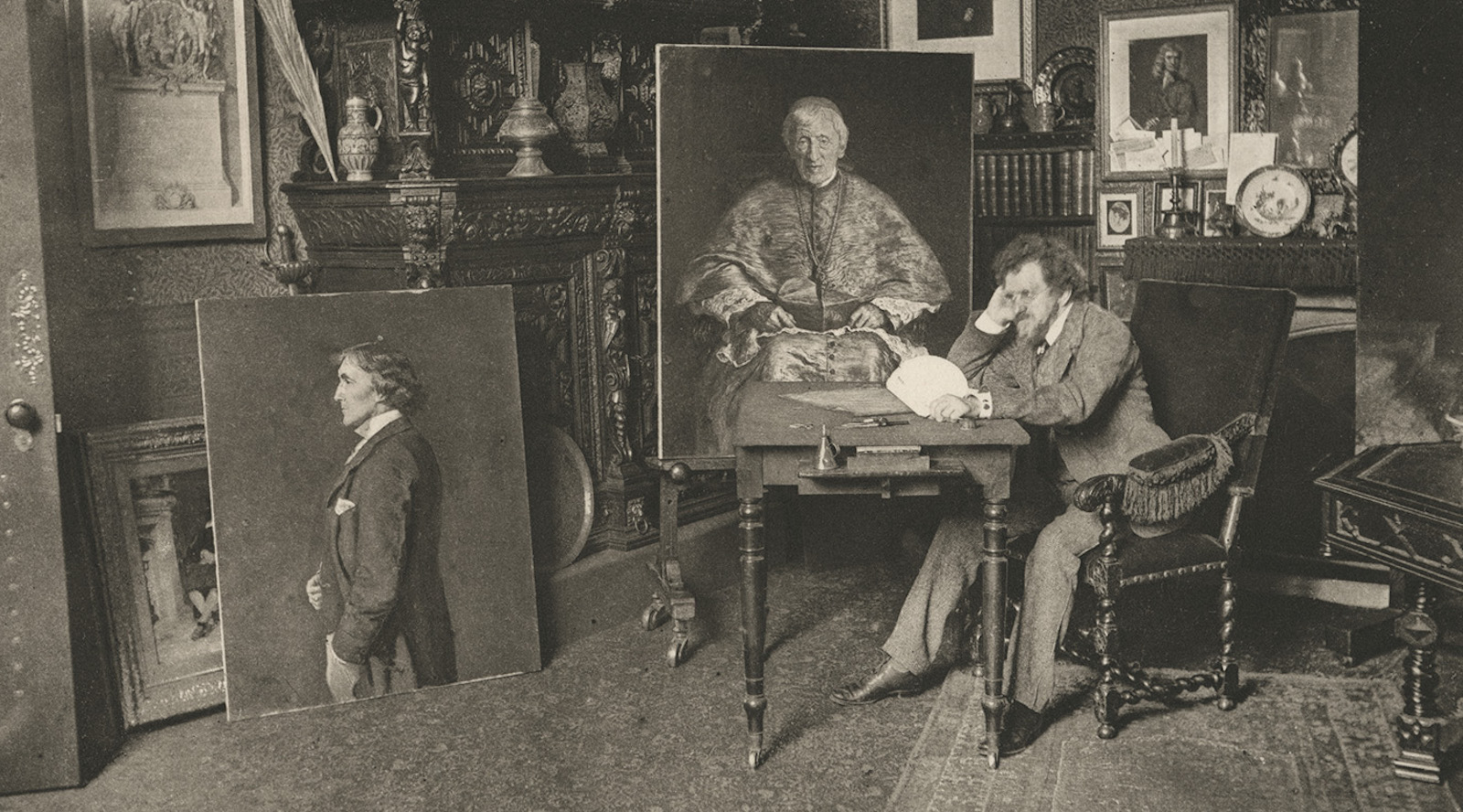This is part of a series entitled, “Preaching: Feeding Fellow Beggars.” Read the series introduction here. To see other posts in the series, click here.
Saint John Henry Newman is widely regarded as one of the greatest stylists of the English language. His mastery of expression was flawless. His writings, simultaneously complex and straightforward, offer rich meat for any mind seeking substantial fare for the satisfaction of its curiosity.
Nevertheless, the quality of his grammar is not the reason why any Catholic should read his sermons. Rather, they are worth reading because they were written to aid our sanctification. St. John Henry himself observed: “The preacher’s object is the spiritual good of his hearers” (The Idea of a University, 304). No amount of fluid syntax, elegant wordplay, or ironic subtleties by any preacher will do any of us any good ultimately. Only a preacher who proclaims the truth of the Gospel and unpacks for his flock the ways in which that truth affects one personally and vitally, can produce a lasting (or eternal) effect in his listeners.
I still remember when I began reading Newman’s sermons. I had been clothed in the Dominican habit for less than a week, and, moreover, was still getting used to being called by the English saint’s name. At the time I received him as my patron, it’s true to say that my fondness for him exceeded my knowledge. Once I received his name, however, I set myself to become better acquainted with him. I selected a biography of him to read—the one by Louis Bouyer. And I checked out from the novitiate library the Ignatius Press collection of Newman’s Parochial and Plain Sermons. I cracked open volume one of eight, read the first sermon over breakfast, and was hooked.
These sermons, written while Newman was still an Anglican clergyman, are remarkably Catholic, no doubt due to his faithfulness to the truths of Scripture. His first sermon, “Holiness Necessary for Future Blessedness,” provides an admirable introduction to St. John Henry’s sanctity, spirituality, and preaching. As its title implies, it focuses on the connection between the life of holiness and the life of heaven. The sermon in effect seeks to answer the question: Why should we be holy? In order to be ready for heaven. This answer, simple enough, should lead to certain realizations. If one is not really interested in heaven, one is not going to be interested in a life of holiness. The fundamental reason why someone would want to live a “godly” life now is because they want to live with God forever. And a distaste for the spiritual life naturally implies a distaste for heaven. As Newman expressed it, someone who has no desire to live a spiritual life here and now will be as little moved by the words, “Enter into the joy of the Lord,” as he is by the words, “Let us pray.”
This means that what is expected of the Christian life—the theological virtues, the moral virtues, sacramental worship—are not meaningless activities which we must execute in order to be rewarded with entry into heaven; they are the beginning of heavenly life itself. Newman compares the life of heaven to a church, because in church, “We praise Him, worship Him, sing to Him, thank Him, confess to Him, give ourselves up to Him, and ask His blessing” (Parochial and Plain Sermons, 7). Prayer is speaking with God—heart speaking to heart; worship is giving God the reverence due his nature; charity is loving God with all our being and our neighbor as ourselves. Far from ceasing in heaven, these acts will become our entire lives. That’s why they matter so much here and now. They accustom us to heavenly blessedness.
And so, what marks Newman’s preaching? A concern for the everyday life of holiness. We are made for an eternal destiny: the resurrection of the body, the communion of saints, the beatific vision. And yet, those things are sought not only after this life, but among, during, and throughout all that life throws at us here and now. Heaven begins here and now. But, as the Incarnation recalls to us, salvation begins in lowliness and meekness. For Newman, “The ideal of holiness is as elevated and lofty as the means to attaining it are humble and mundane.” (Ian Ker, John Henry Newman: A Biography, 93). Far from losing ourselves in the sublimity of the truths of the faith—the Trinity, the Incarnation, the Resurrection—we are called to allow these truths to suffuse our lives each and every day, enabling us to carry out the duties of our state in life with God’s help.
Newman’s prose is among the most elevated and sublime that can be found in the English language. Yet the content of his preaching is focused on the most practical: the salvation of his listener’s soul. Newman is a convincing preacher because he is a convicted believer. As he puts it, “Earnestness creates earnestness in others by sympathy; and the more a preacher loses and is lost to himself, the more does he gain his brethren” (Idea of a University, 305). Newman is a saint not because he was a great preacher. He was a great preacher because he was a saint. He allowed the truths of the faith so to fill his own soul that they became manifest to his listeners. He so yearned for heaven himself that he was able to guide others to it. Following his example, may we let the Gospel shape our lives today, so that one day we may enter into the joy of the Lord, together with all the saints.
✠
Photo by J. P. Mayall (public domain)







